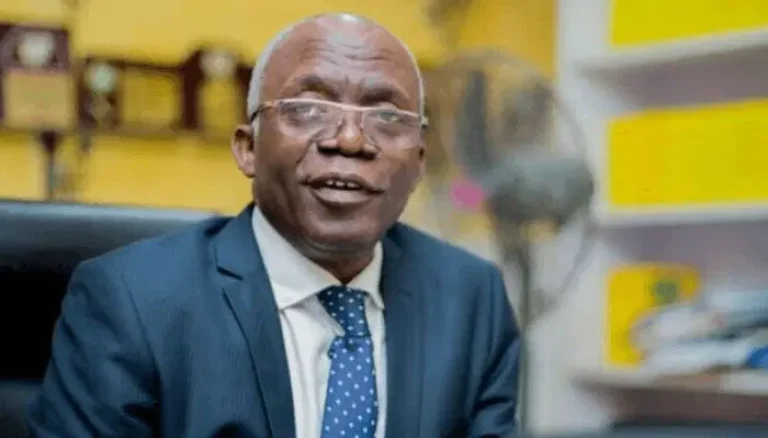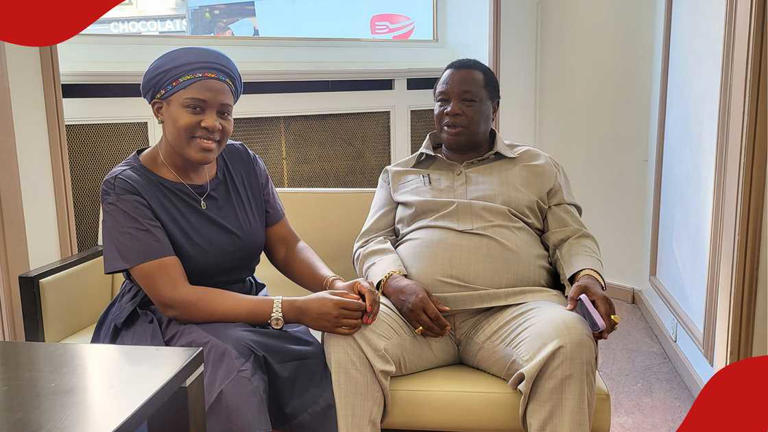By ABUBAKAR EVUTI
When former Governor of New York, Mario Cuomo, said that campaign is done in poetry but governance in prose, he must have been thinking of the hazy days of slogans on steroids which fills supporters with false notion of an easy Eldorado; sweeping majestic visions of all people rising victorious and transforming the state with theories into a new earth. But anybody who knows anything knows that things are not this simple: campaign manifestos are theories, and governance proper is real life work, and only the inordinately idealistic would be so rash as to confuse the two.
I was on Sokoto Road on the day unqualified teachers, holding up exam-is-not-the-true-test-of-knowledge placards, marched down to Sir. Kashim Government House to protest their dismissal after failing the most elementary examination.
If you were there you would have seen the crowd, a thousand at least, who marched down to the Governor’s office to register their displeasure. But el-Rufai, the son of his father, did not budge! This was on the eve of an election year, with the looming possibility of losing the votes of these disgruntled people, their dependents and their associates.
“We take decisions because they are right, not because they offer us any political advantage,” el-Rufai responded.
This is the kind of action that often determines history.
I have often argued that, compared to Lagos, Kaduna State is more difficult to govern because Kaduna does not have as much resources; is by far larger; is nearly as populated and has the burden of religious and tribal crisis.
Mallam el-Rufai who became Kaduna’s Governor in 2015 used a number of these considered disadvantages to today better the position of the state with his reforms that were unpopular because he was advancing a departure from the ordinary: investment promotion to attract FDIs and DDIs to enjoy the advantage of a state with high youthful population and land, a not necessarily large but highly efficient civil service is in place, qualified teachers in public schools is now the norm, infrastructure that would last several decades have been erected and the blockade of leakages ensured, all of which have given Kaduna State a sure footing into the future.
Here is the question, as Hausawa would say, that is eating the food in everyone’s calabash: who succeeds el-Rufai; who would continue with the development of the capital of Northern Nigeria by proceeding with the actualization of the Kaduna State Infrastructure and Industrialization Plan well into the year 2030?
In a democratic dispensation, succession is by worth, not birth, which provides some guarantee for a people to determine their own future and ensure that development of nearly a decade is not disrupted by permitting the incompetent to take over the mantle of leadership. And here is the genius of el-Rufai: even his staunchest detractors would agree that the man leaves nothing to chance. Surely a succession plan is in place.
A number of individuals in the APC, sagacious, articulate and highly experienced, have presented themselves as candidates to continue the work el-Rufai has started. But there is one that appears to standout, whom those who have been paying attention are suspecting is The Chosen One: Muhammad Sani Dattijo.
And why not; he is the most colorful of all aspirants and has been in the Executive Council longer than all other aspirants, from 2015 until 2022; a true student of the el-Rufai School of Governance who was central to many developmental projects including the Urban Renewal Project that has put to bed the old saying that should Sardauna return to life (because of a lack of development) would be able to locate his house.
Was Dattijo not the reason why Kaduna was able to present her budget earlier than most allowing the state to plan effectively and commit sufficient resources to pressing sectors like Education and Health? Dattijo ensured implementation of the budget calendar as conceptualized by el-Rufai.
We are all witnesses, Planning and Budget Commission under Dattijo became a beehive of activities for National and International Development Partners who were blown away by the dynamism of it’s leadership and so elbowed their way forward to collaborate with Kaduna State, a development that inspired other State Governments from all parts of Nigeria to periodically visit for Peer Learning and hands-holding on many how-to -dos for their States’ advancement.
Plus, Dattijo is younger than the others which follows that he is better fit to meet the pressing schedules that the daily toiling of governance of a challenging state like Kaduna requires. His temperament is measured and his respect for all persons, regardless of age or status, is incontestable.
Being in his 40s, Dattijo is the bridge between the young and the old; he understands and would better relate with the young as well as the old. His age makes him equipped to play basketball at Murtala Square with young boys in the morning, explain government policies on Twitter in the afternoon, and sit through a deliberation in the palace of the Amir of Zazzau in the evening.
His readiness is beyond question as the man is running the best issue-based campaign Nigeria has never seen, and has since presented to the public a clear Policy Document inviting all stakeholders to understand his vision and make suggestions and contributions.
Governor el-Rufai himself has spoken very highly of Dattijo, and has demonstrated the trust he has in Dattijo’s capacity by giving him the most challenging responsibilities, including making him the Chief of Staff, entrusting him with conceptualization and implementation of the State Development Plan that was further broken down to Sector Implementation Plans (SIPs)— the first of it’s kind for the State— where each sector has it’s own Activity Manual for the production of it’s own budget and it’s effective implementation.
Similarly, Dattijo brought to life the Infrastructural and Industrial Master plan for Kaduna—the first of it’s kind for the State. Dattijo authored the Kaduna State SDGs Report 2017 which became the first by any subnational in the world to break down every indicator and goal, develop a strategy for it’s implementation and monitoring, which enabled Kaduna become the first subnational to present such report at the UN General Assembly thereby putting Kaduna on the global map!
Impressively, all these policy documents are inter-linked and their implementation must now be sustained. This is how Kaduna can move forward, by insisting on a transition from the master to the student, not only for Kaduna’s sake but for the entire northern region of Nigeria; because, as the capital, when Kaduna sneezes, Northern Nigeria catches a cold.
With her resources especially the concentration of learning institutions and a large population of young people, Kaduna would lead the way into the future of the North by rescuing our people from the challenges of the past into the contentment of the future. Dattijo understands the dynamics of current global politics and leadership and would tap into his robust network of institutions and individuals globally for the advancement of Kaduna State into the future especially in attracting Foreign Direct Investments and providing support for the people.
Nor is his appreciation of ICT in doubt. Dattijo understands the future in the face of the advent of futuristic concepts like crypto-currency, advancement in technology that now holds the promise of the Singularity. More than most he knows that the world is certainly going to change in the next decade and he can see that while industrialisation and infrastructure are a necessary component, innovation is the key to development.
He is the most equipped to inspire a significant departure from the old thinking which is now imperative to trigger rapid development. Dattijo understands that all of these are a possibility as we are only limited by our imagination for we have seen examples of nations with meager resources and overwhelming challenges move “From Third-World To First”.
Avuti wrote in from Kaduna (Vanguard)







